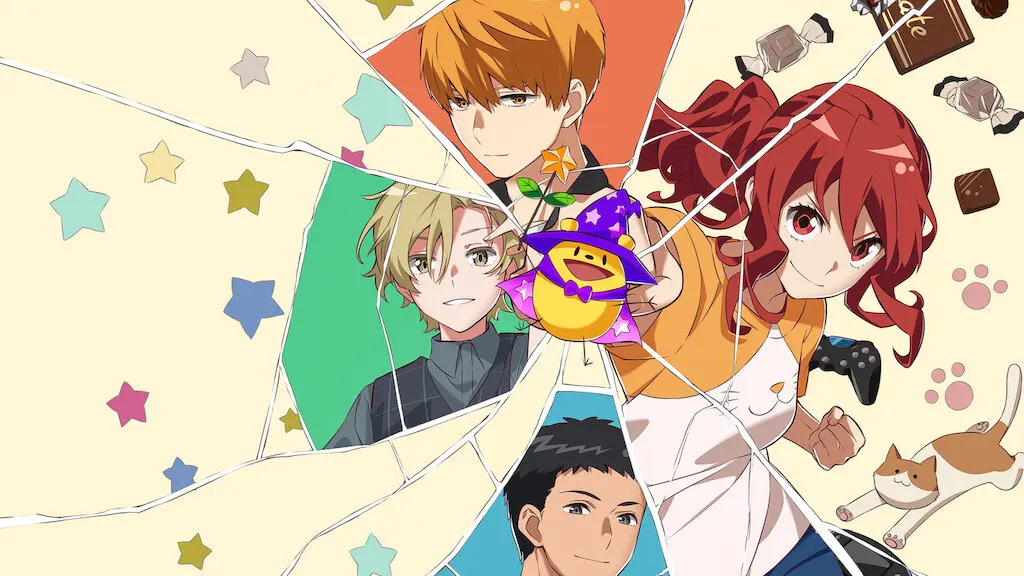Summary
It goes on perhaps a little too long, but Romantic Killer has a modern, healthy view of relationships, identity and human connection that is refreshing and worthwhile.
Based on Wataru Momose’s manga of the same name, Romantic Killer is a refreshing change of pace for a Netflix anime, given it swerves the usual action-oriented sci-fi and martial arts genres in favor of what essentially amounts to a very modern and off-kilter romantic comedy. With some fanciful ideas and an ultimately uplifting conclusion, the 12-part series is an enjoyable distraction, even if it runs out of ideas before it runs out of episodes.
Eerily evoking my own primary interests, the show’s protagonist, Anzu (Rie Takahashi), is interested in little beyond chocolate, video games, and her cat. Through a game titled Romantic Thriller, Anzu is introduced to a meddling matchmaking wizard named Riri (Mikako Komatsu) who tries to work within the narrow confines of the dating sim to turn Anzu’s love life around by replacing her three usual wants with three dudes, at least one of whom might start a relationship with her. Anzu’s resistance to these parameters breaks off a new aspect of herself, the titular Romantic Killer.
There’s a lot on the agenda here. The endless and worsening gamification of our culture in general but dating, in particular, is a worthwhile subject, and a literal video game is a good prism through which to filter the idea since so many people these days treat meeting people and hooking up in the same detached way they do their digital trinkets or KDR or any other in-game measure of achievement. As it turns out, you can’t hem in human experience and connection into the kinds of strictly designed situations games are built on; there’s too much breadth of experience and complexity of character for the guidelines to hold.
There’s an old philosophical theory that holds that if someone were able to design their perfect life and live it without ever seeing the seams of the illusion, nobody would volunteer to do so. That’s because most people recognize intuitively that the awkwardness and imperfections of the human experience are what make authentic connection so powerful. Romantic Killer is built around breaking down the falsity of contrived “ideal” scenarios and exposing the reality beneath.
Within all this is an examination of stereotypes, with the idea being that nobody is truly how they first appear. As the father of two young girls, one of whom is a teenager, I could appreciate the focus on reinventing oneself to conform to expectations, on judging others according to those expectations, and on realizing through experience – or growing up and changing, in other words – that first impressions rarely tell a whole story. Love isn’t always romantic, nor should it be; there is love of all kinds, bonds of all types, but the lifeblood of them all is understanding. You must know yourself before you can know anyone else.
Romantic Killer has got me feeling all highfalutin, obviously, but that’s a good thing – it’s a reminder that sometimes even anime, which has built regressive social politics into its very DNA, can have something novel and empathetic to say about dating without amounting to tokenism and arch caricatures. This series has a relaxed idea of gender, self-expression, and relationships that feels distinctly modern, which makes sense since the manga is relatively new itself. If this is the direction mainstream anime is heading in, then I’m here for it, and it’s nice to imagine how many people in the target demographic will find something meaningful in this show’s ideas and approach.
Read More: Romantic Killer Season 1 Ending Explained




